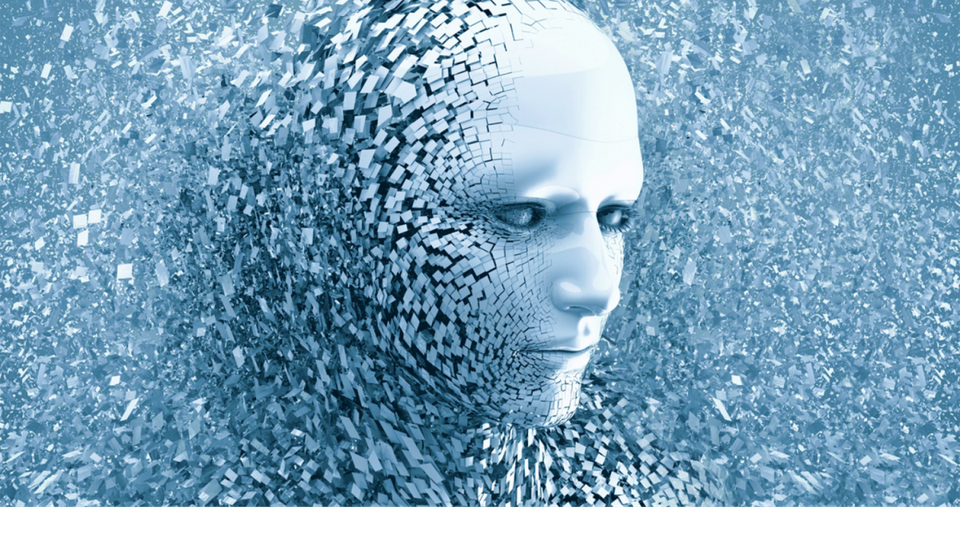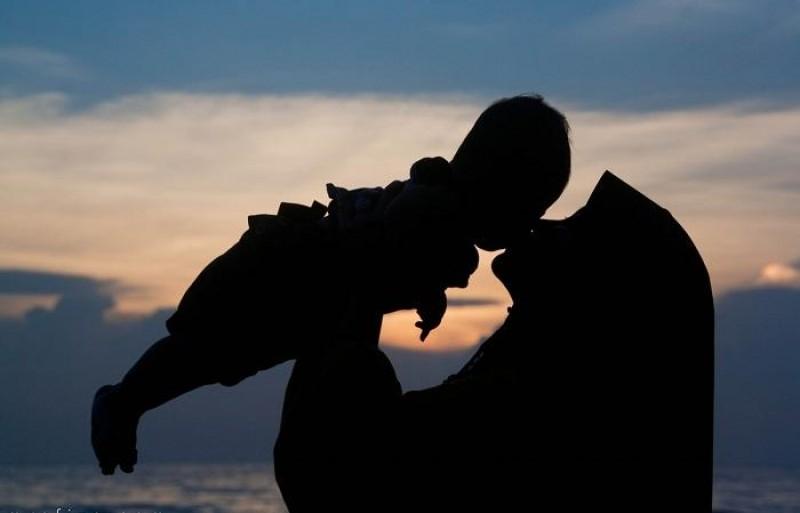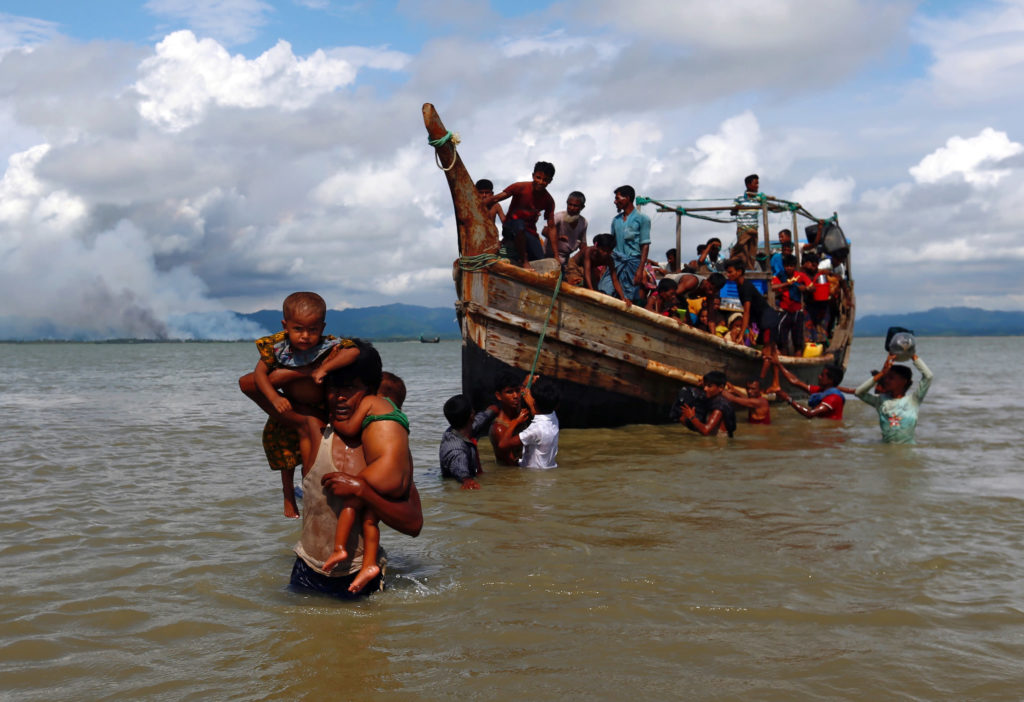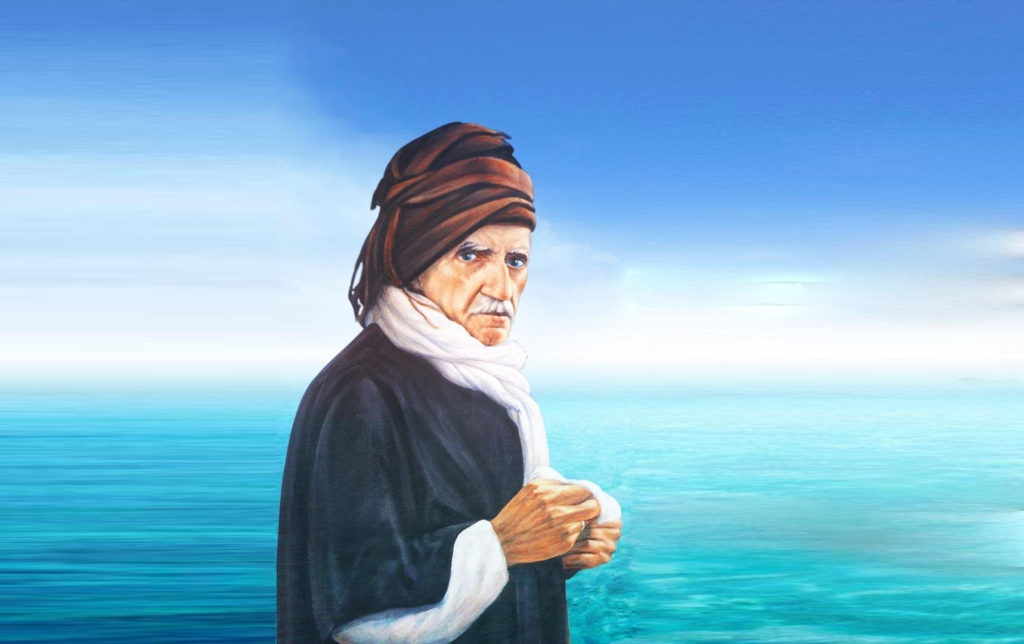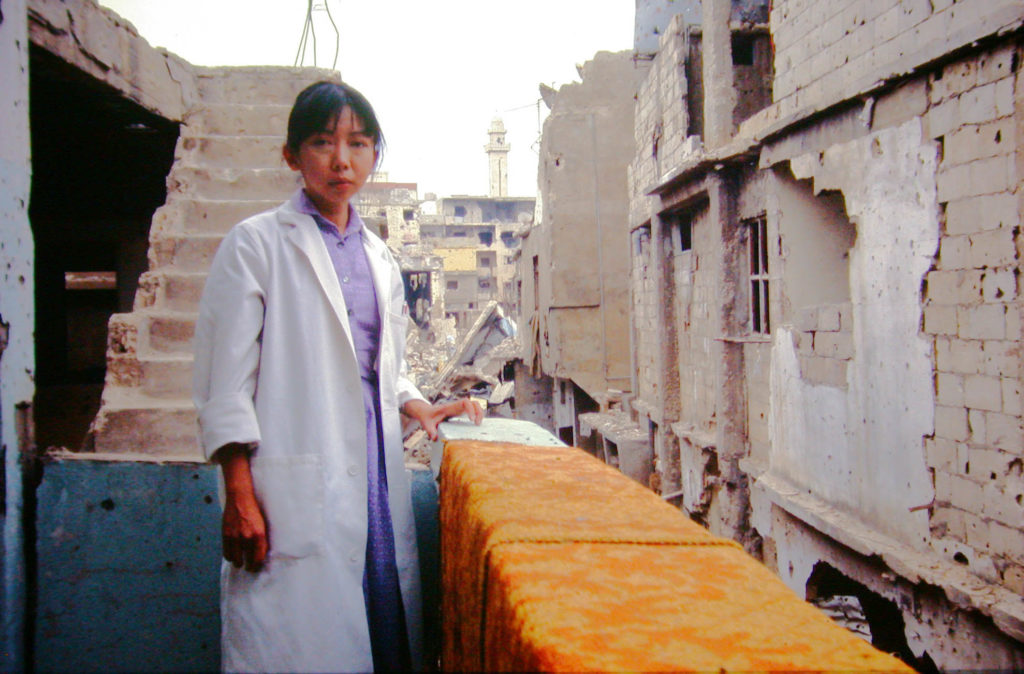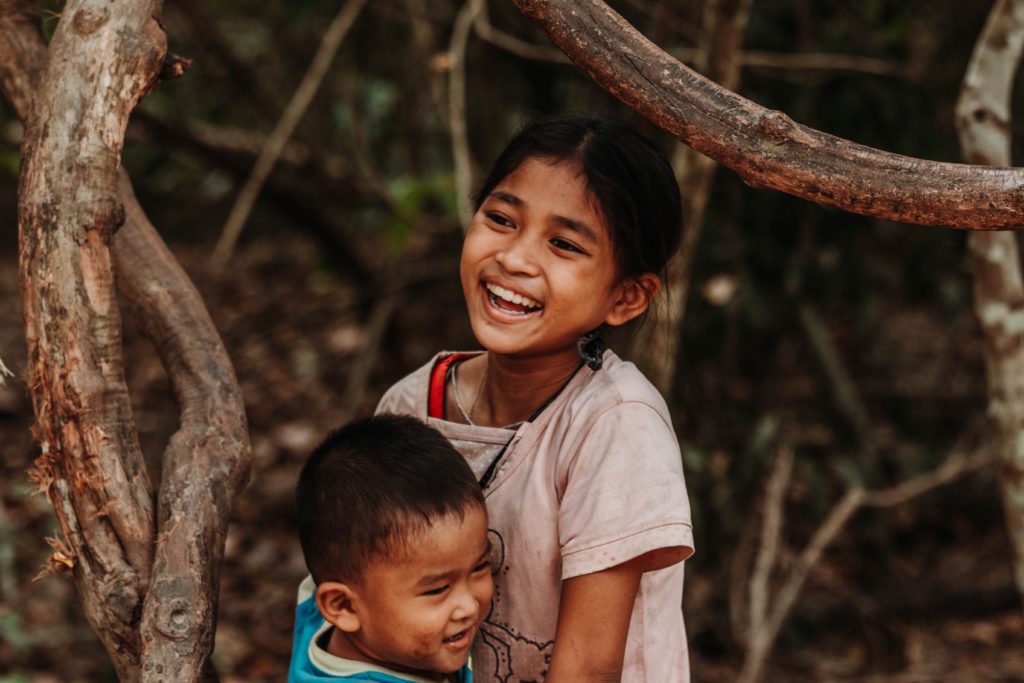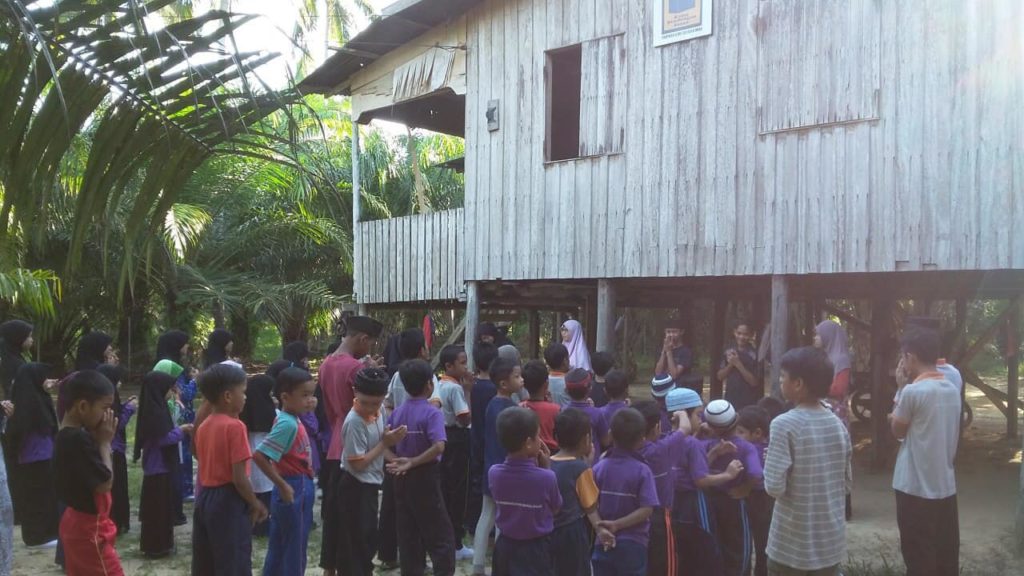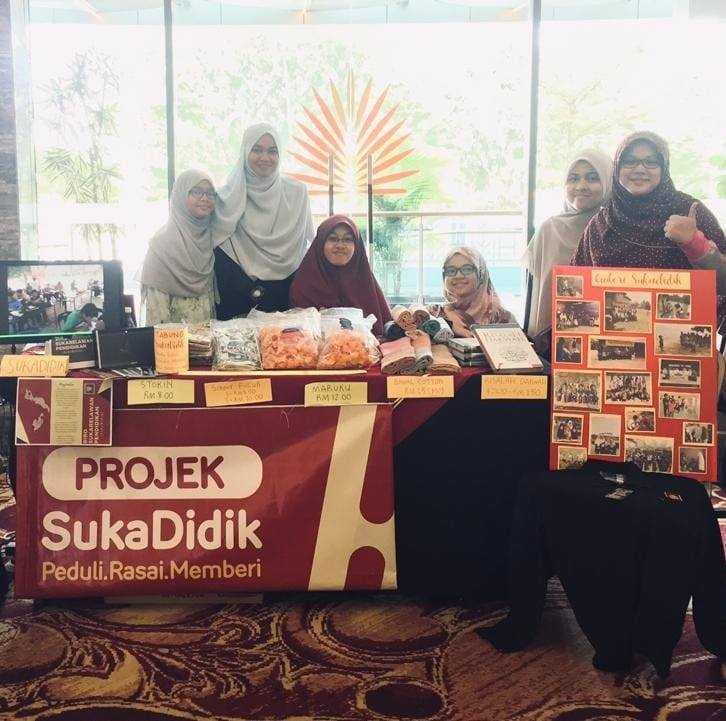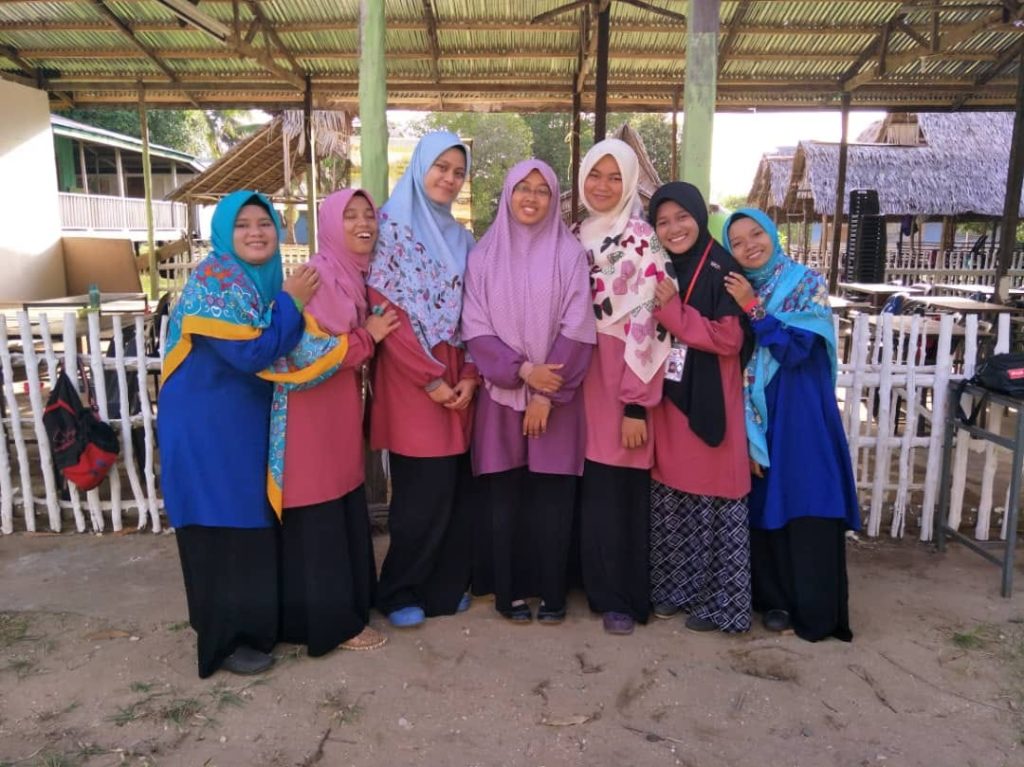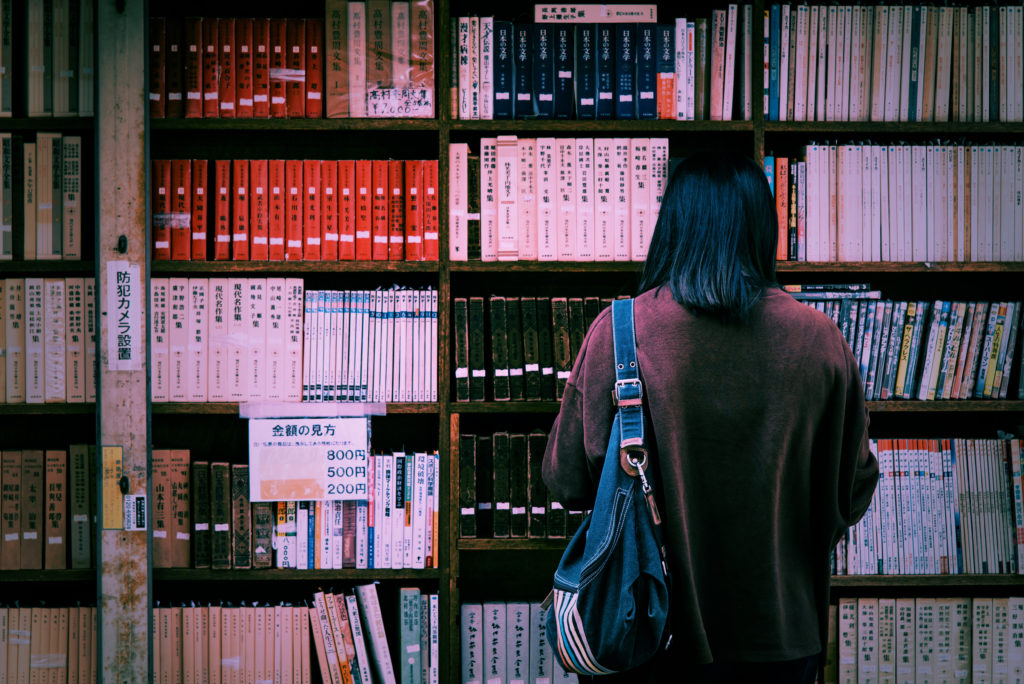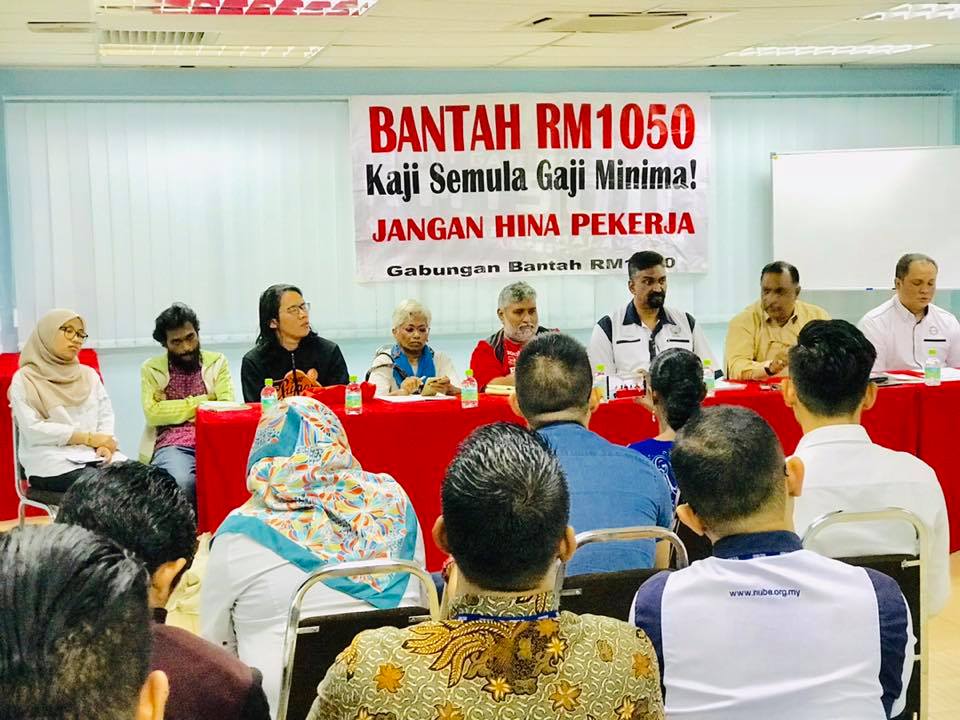
Oleh: Nuraqal Auji
Apabila menyebut fahaman Atheism, perkara pertama yang muncul dalam benak pemikiran kebanyakkan penganut Theism (iaitu yang beragama secara terorganisasi dan mempunyai kaedah ritual/syariat yang formal seperti Islam, Kristian, Yahudi dan etc) mengenai asal usul kejadian manusia adalah dari beruk, teori dari Darwin, evolusinya manusia dari beruk kerana dikatakan DNA-nya paling hampir menyerupai manusia, sekaligus mungkin ada kategori “orang-orang primitif jenis lain” (Neanderthal, Homo Erectus, Naledia, Habilis dan lain-lain) boleh jadi dari evolusi ataupun bukan dari evolusi. Tidak kurang adanya pendapat jika benar manusia dari proses evolusi, yang pastinya tak sedikit yang berpendapat itu adalah pendapat yang menjurus kepada menafikan bahawa manusia dari Adam yang dimuliakan menurut kitab samawi masing-masing, dan dalam masa yang sama cuba menyangkal kebenaran kitab-kitab samawi.
Artikel ini bukanlah ingin merungkai samada Adam dari mana asal sebenarnya. Tetapi ingin memberi kesedaran tumbuhnya suatu fahaman yang baru sedikit dari Darwin dan Scientology iaitu Rael-ianism, ini bukan Real tapi Rael, baca dengan teliti pasti boleh membezakannya.
Raelianism adalah ideologi/isme berdasarkan Sains dan menolak sebarang kepercayaan kepada Supreme Power (Tuhan), ianya adalah fahaman yang merungkai tentang asal-usul kewujudan manusia dibumi dan apa tujuan hidup manusia dibumi yang sebenarnya. Fahaman ini secara ringkas diterajui oleh Claude Vorilhon (Perancis) pada tahun 1973.
Sesiapa sahaja yang menerima fahaman Raelianism dipanggil sebagai Raelian. Semua Raelian tidak mempercayai adanya sesuatu Yang Maha-kuasa, juga tidak tidak mempercayai siapa yang bertanggung jawab untuk penciptaan Alam semesta dan lalu mengaturnya. Dengan demikian Raelianism adalah salah satu cabang Atheist. Disebabkan tak percaya siapa yang bertanggungjawab mencipta alam dan kemudian mengaturnya, perkara inilah yang kemudian membawa Raelian kepada pertanyaan tentang alam semesta yang tanpa batas (infinite regression of universe). Disebabkan tidak ada awal atau akhir terhadap ketidak terbatasan, pada fahaman Raeliasnism meletakkan sebarang watak Tuhan atau sesuatu yang Maha tinggi sebagai punca yang mencetuskan segala sesuatu sebelum adanya sesuatu adalah tidak mungkin, sebab pada Raelian tidak dapat menciptakan sesuatu dari yang tidak ada, anda perlu ada bahan-bahan mentah (segala jenis gas, tenaga dan bahan organik lain yang berkaitan) yang telah tersedia ada, barulah anda boleh memulakan penciptaan.
Bagaimanapun menurut para Raelian, mereka berpandangan bahwa ada orang-orang seperti kita manusia, yang disebut sang Elohim/sang Allah/sang Apkallu/sang Anunnaki dan etc, yang memiliki teknologi puluhan ribu tahun yang lebih maju dari manusia yang bertanggung jawab datang ke planet ini ribuan tahun dahulu dan menciptakan semua kehidupan seperti yang kita ketahui. Sang Elohim/sang Allah menjelaskan kepada Rael dalam tahun 1973 bahwa diri Elohim atau diri Allah juga diciptakan oleh sebuah ras orang-orang yang juga diciptakan oleh sebuah ras orang-orang dan siklus itu tidak pernah berakhir sepertinya kita adalah sebuah rangkaian dalam sebuah rantai tanpa ujung (infinite regression). Tidak ada awal untuk alam semesta (alam ini qadim) didalam ruang angkasa juga didalam waktu. Disebabkan bangsa Elohim/bangsa Allah adalah para pencipta bangsa manusia, Raelian sangat menghormati mereka tetapi Raelian tidak menyembah mereka sebagai suatu figur/icon Yang Maha-tinggi. Para Raelian mencintai mereka dan sedang mempersiapkan kedatangan mereka antaranya dengan menyemai sikap kasih sayang sesama manusia sejagat.
Para Raelian mengerti bahawa hanya melalui ilmu pengetahuan, terutamanya sains dan teknologi, bangsa Elohim/bangsa Allah dapat mengendalikan DNA dan dari bahan yang tidak bergerak di planet ini telah menciptakan semua kehidupan yang dapat dilihat saat ini.
Sekarang menurut para Raelian, bangsa manusia juga turut mengerjakan hal yang sama dalam laboratorium-laboratorium ciptaan sendiri. Bilamana bangsa manusia juga berhasil menciptakan kehidupan dan menanamkan kehidupan itu kepada yang lain, maka bangsa manusia pula menjadi “The Next Architect” atau “The Next Engineer”. Maka boleh jadi bangsa manusia pula dianggap menjadi “Tuhan” untuk sebuah dunia/planet primitif.
Para Raelian juga tak menolak malah mengiktiraf nabi-nabi terdahulu seperti Musa, Buddha, Yesus dn Muhammad, tapi dengan interpretasi mereka yang tersendiri, iaitu para “nabi-nabi” terdahulu secara hakikat membawa mesej yang terlalu maju dan sukar untuk difahami oleh masyarakat pada zaman tersebut jika ajaran-ajaran/penulisan-penulisan/terminalogi-terminalogi dalam kitab tersebut tidak disesuaikan dengan pemikiran masyarakat pada zaman tersebut. Maka interpretasi yang sebenarnya yang lebih maju dirungkai oleh para Raelian, kerana yang sebenarnya setiap nabi-nabi terdahulu tidak membawa ajaran yang jumud dan hanya membincangkan hal-hal yang kecil.
Anggota Raelian mengikuti ajaran ini tanpa campur tangan orang lain (dalam agama lain yang disebut sebagai pendakwah).
Pengikut Raelian dikatakan adalah pencari kebenaran asal-usul manusia melalui kajian sejarah manusia, bukti artifak, falsafah purba dan kebanyakan daripada para pengikut ni turut juga mendapatkan maklumat tentang kebenaran masa lalu melalui media Internet yang telah dikaji oleh Raelian-Raelian yang pakar dalam bidang keilmuan masing-masing, serta mengikuti fahaman ini melalui kesedaran mereka sendiri (self-conciousness).
Raelians dikhabarkan sebagai Freemasonry dalam bentuk Buddhisme juga sering dipanggil mazhab UFO, kerana dikatakan mengikut fakta sejarah anthropologi dan konteks falsafah sesiapa sahaja yang membekalkan ilmu dan mencipta sesuatu atau membuat sebarang inovasi maka dialah “Pencipta”. Sekali lagi ditegaskan, menurut Raelian, dikatakan sejarah manusia bermula dengan bangsa yang maju yang wujud sebelum manusia, iaitu bangsa Allah/bangsa Elohim/bangsa/ Apkallu/bangsa Anunnaki. Bagi individu yang “pernah menganut” agama Islam dan kemudiannya murtad, ada sesetengahnya lebih prefer menggunakan term “bangsa Allah”, dipercayai bangsa Allah ini adalah makhluk yang lebih advance menciptakan manusia dan segala isi di bumi ini, nama bangsa Allah menjadi nama yang lain apabila merujuk kepada bekas penganut agama nasrani atau yahudi iaitu dipanggil bangsa Elohim, juga memiliki description yang sama seperti bangsa Allah, atau bangsa Apkallu, atau dipanggil sebagai bangsa Anunnaki.
Sesiapa sahaja yang meragui kelompok ini memanggil fahaman ini sebagai mazhab Atheist hari terakhir.
Tetapi merujuk kepada buku “Reka Bentuk Intelektual” Raelian adalah penerang bagi agama-agama primitif yang mempercayai perkara-perkara ghaib atau supernatural secara membabi-buta tanpa disertakan penerangan secara proses saintifik.
Para Raelian juga percaya bahawa Rael adalah utusan terakhir bumi untuk menjelaskan identiti “Tuhan (bagi manusia primitif, sedangkan menurut Raelian bangsa Allah/bangsa Apkallu/bangsa Annuki/bangsa Elohim sepatutnya hanya dikenali sebagai “The Architect” atau “The Engineer” atau yang sebanding dengannya, tetapi bukannya dikenali sebagai tuhan seperti yang disebut oleh bangsa manusia yang primitif)” bagi membina kehidupan suci Maitreya untuk membina syurga dibumi (dalam doa ayah kita dari bangsa manusia).
Walaupaun banyak masalah keraguan kepada kumpulan ini seperti bunuh diri dan lain-lain. Tetapi kumpulan berfahaman Raelianisme ini tak pernah mengajarkan ajaran yang mereka kata suaau kebodohan untuk merosakkan diri sendiri, seperti menjadi pengebom berani mati untuk tujuan membunuh manusia lain ataupun membunuh diri cara lain atas perkara yang tak perlu dan bersifat primitif.
Raelian mengajarkan kasih sayang sejagat (mandat Maitreya), kerajaan berdasarkan intelek hasil dari self-conciousness dan membina kehidupan masa depan dengan bantuan teknologi yang semakin maju tanpa agama, kerana agama membantutkan perkembangan teknologi (genokrasi), mengajarkan untuk mencintai diri sendiri dengan sesungguhnya yang bermaksud tiada peperangan, tiada pembunuhan, manusia saling sayang dan disatukan sebagai manusia bukan disatukan kerana agama yang dianuti. Kerana bagi mereka, agamalah penyebab mazhab antara mazhab saling bergaduh, kerana agamalah pemahaman sektor akidah berpecah-pecah dan saling mengkafir antara satu sama lain, saling dengki mendengki antara satu sama lain. Kerana agamalah ramai yang apabila mempelajarinya kemudian dirasakan ilmu tinggi sedikit mula rasa hebat , dan jika ada yang tahu jauh lebih sedikit tentang agama, maka akan ada juga rasa dengki dan ingin menjatuhkan padahal saling mempelajari agama. Selain itu menurut mereka agamalah juga yang menyemai benih-benih kebencian antara satu sama lain, tiada kasih sayang seperti ajaran cinta kemanusiaan seperti humanisme dan Raelianisme yang menjadi salah satu cabang atheism.
Larangan dalam fahaman ini adalah meminum minuman yang mengandungi alkohol, kafein, dan juga dilarang menghisap rokok serta menggunakan dadah kerana ia boleh merosakkan struktur DNA dlm tubuh.
Kenapa perlu tahu tentang Raelianism?
Kita sedia maklum, Atheism bukan sahaja ada di negara-negara Eropah, tetapi juga di Malaysia dan di negara sekelilingnya. Maka untuk tidak mengendahkannya sebagai muslim , sebagai ulama dan sebagai pendakwah rata-ratanya mungkin tidak sesuai, terutama didalam negara yang mengamalkan sistem demokrasi yang disertai penerapan undang-undangnya yang liberal bertonggakkan kebebasan untuk berkeyakinan apa pun (termasuklah untuk murtad dan menyebarluaskan fahaman fasad tanpa sekatan secara undang-undang Islam dari wahyu), dan ditambah pula masyarakat yang mula beralih arah kepada pemikiran existentialism secara partial menambahkan lagi peluang success fahaman atheism gaya baru untuk masuk ke dalam benak pemikiran masyarakat hasil dari sistem demokrasi itu sendiri sebagai “kilang menternak” segala fasad di bumi Allah.
Suatu analogi yang saya boleh berikan disini untuk mudah faham, terutama bagi peminat drama fantasi berkategori berat iaitu “Game of Throne”, sistem demokrasi dan atheism gaya baru itu ibarat “White Walker” sejenis makhluk undead yang sedang menerobos masuk ke dalam benteng negara, sedangkan dalam masa yang sama, para raja yang banyak didalam negara tersebut (yang analoginya seperti pelbagai mazhab, pelbagai aliran agama, pemuka-pemuka, para ulama, para daie) sibuk bercakaran untuk menaiki/merebut takhta secara extreme (takhta disini merujuk analoginya seperti penentuan siapa lebih ahli sunnah dan siapa yang bukan ahli sunnah, maka secara extreme saling mengkafirkan walaupun sembah Allah yang sama, ikut rasul yang sama dan membaca kitab yang sama, cuma ada sedikit beza pendapat sahaja)
Maka bergaduh secara dalaman, sedangkan ancaman luar masuk dengan mudah dan bersorak kegembiraan. Poinnya disini, gagal mengenal pasti siapa musuh yang sebenar, iaitu sistem demokrasi, dengan undang-undang yang liberal (menjadi benih bebasnya atheism untuk mula berleluasa) beserta gaya pemikiran dan tingkahlaku masyarakat yang menuju kepada existentialism yang perlu disedarkan bersama untuk membantu usaha ini.
Sedikit jawapan ringkas untuk siklus bangsa yang tiada penghujung menurut claim Raelian (anda boleh kembangkan sendiri hujah-hujah anda mengikut kebolehan berfikir dan dalil-dalil dari wahyu)
Menurut Raelian, selain bangsa Allah/bangsa Elohim, ada lagi diatas mereka bangsa-bangsa lain yang mencipta mereka, dan keadaan ini berterusan dengan rantaian siklus tanpa batas, yang kekal itu hanya alam beserta bahan-bahan mentahnya seperti energy. Maka perlu difikirkan disini, sekiranya anda mempunyai 5 susunan syiling diatas meja yang disusun satu barisan teratur, sebelum ingin menjentik satu syiling pertama untuk syiling pertama bertembung dengan syiling-syiling lain untuk menghasilkan suatu movement dan sesuatu corak tertentu, bayangkan anda perlu meminta kebenaran ayah atau ibu anda untuk jentik syiling tersebut, kemudian ibu/ayah anda minta pula kebenaran datuk/nenek mereka, kemudian datuk/nenek mereka minta pula pada moyang mereka dan moyang mereka, agaknya bila baru anda boleh menjentik syiling tersebut untuk syiling tersebut bergerak pada lokasi tertentu dan menghasilkan corak berhenti yang tertentu? Maka disinilah infinite regression tentang bangsa Allah/bangsa Elohim dan alam ini qadim ada kebathilannya. Yang jelas pasti ada yang Maha Tunggal (Unmoved mover) mencetuskannya dengan satu “jentikkan” untuk tercetusnya alam ini tanpa perlu dapatkan permission dari “tuhan-tuhan” lain (yang kalau tidak sampai bila pun segala makhluk dan alam itu tak siap dicipta kerana terlalu banyak hierarki tanpa kesudahan untuk dapatkan kebenaran untuk cetuskan ciptaan yang cukup besar dialam jagat raya ini, ini bukan projek lipat kertas untuk buat origami, tapi ini mencipta alam yang memerlukan hanya yang Maha Perkasa dan Maha Bijaksana untuk menciptanya, bukan mindless energy yang tiba-tiba mencetuskan sesuatu kewujudan bangsa pertama dialam ini, ada beza disitu harap mudah faham contoh-contoh ini).
Maka Al-quran menjelaskan ada satu Singular Power/Singular Entity that create all those causes, not mindless yet illogical infinite regression:
“Katakanlah, Dialah Allah yang Maha Esa” (Singular causes, Si Pencetus yang tidak dicetuskan oleh sesuatu yang lain)
“Allah tempat meminta segala sesuatu”
“Allah tidak beranak dan tidak pula diperanakkan” (bukan dari bangsa atas bangsa lain, kalau Dia ada bangsa, maka ada jangka hayatnya yang tertentu, dengan jangka hayat, dia perlu belajar, dengan belajar berapa lama lagi baru dia boleh cipta alam dan ditambah dengan approval-approval yang perlu sebelum alam dicipta?)
“Dan tidak ada sesuatu yang setara dengan Dia” (Tak serupa dengan sesuatu apa pun, dan Dia berkeupayaan mengawali sesuatu ciptaan tanpa perlu bahan mentah untuk terlebih dahulu wujud, Dia sahaja yang sebenarnya mencipta dari tiada kepada adanya bahan bahan asas beserta elemen untuk dimanfaat oleh manusia, sedangkan manusia hanya melakukan inovasi, gabungkan elemen dan bahan mentah terhasil objek baru)
(Al-Ikhlas: 1-4)
Jika anda ingin lebih faham tentang fahaman yang cenderung kepada Raelianism melalui pendekatan menonton filem, saya secara peribadi mencadangkan filem bertajuk “Prometheus” tahun 2012 ini.
Ia hampir mirip atau cenderung dengan pembuktian fahaman seakan Raelianism tentang hakikat kejadian manusia dan alam.
Disclaimer: Ini adalah artikel untuk mencetus kesedaran setiap individu, terutama diri saya, bukan untuk merendahkan usaha-usaha atau segala bakti kaum muslimin dan muslimat yang telah ditaburkan dibumi Allah ini. Segala penulisan ini adalah sekadar jaiz aqli, berdasarkan pengalaman peribadi, pembacaan dari sumber tertentu, dari pemerhatian serta dari diskusi daripada individu individu yang jelas sebagai sumber primary. Semoga tak disalah mengerti dan tidak kecam saya.
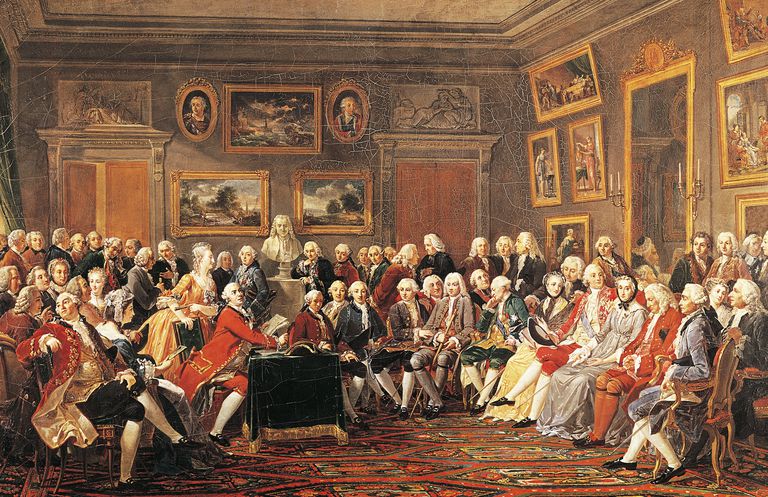
Kami mengalu-alukan cadangan atau komen dari pembaca. Sekiranya anda punya artikel atau pandangan balas yang berbeza, kami juga mengalu-alukan tulisan anda bagi tujuan publikasi.
